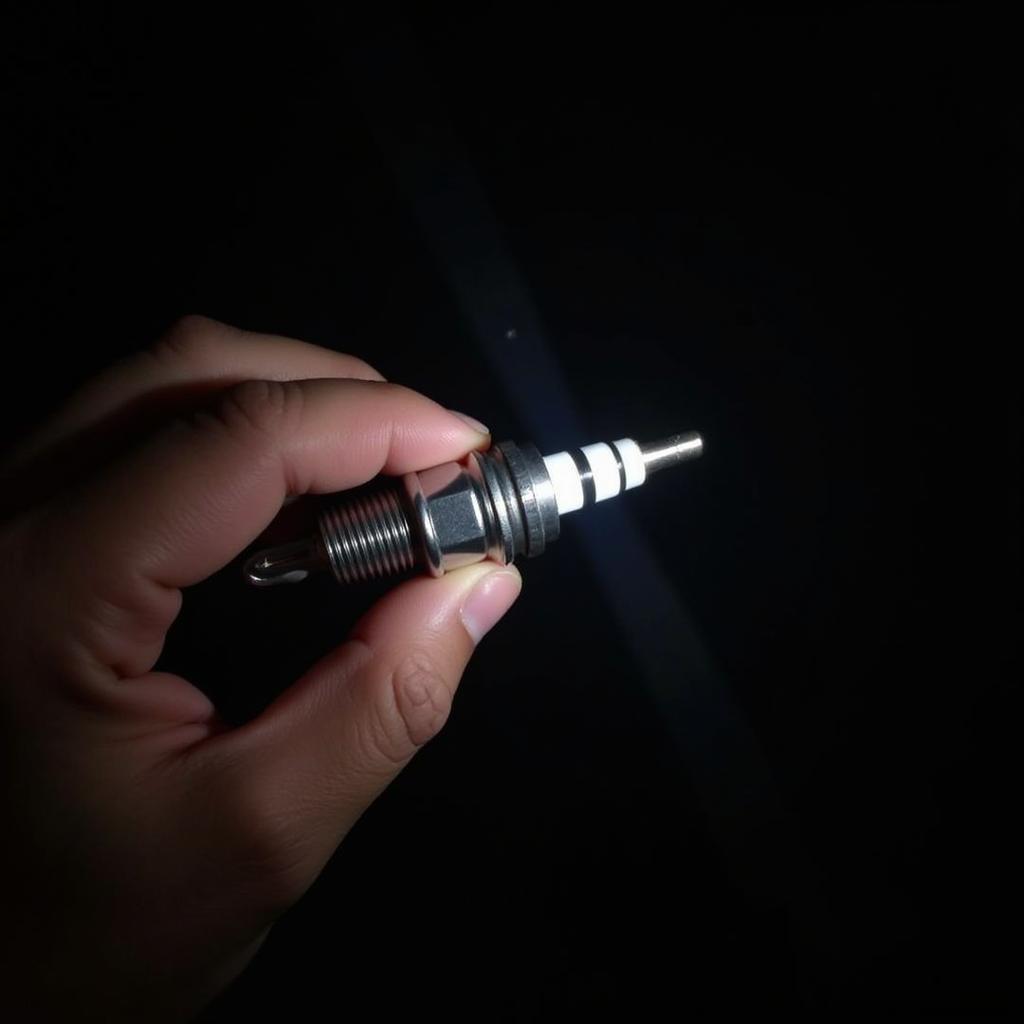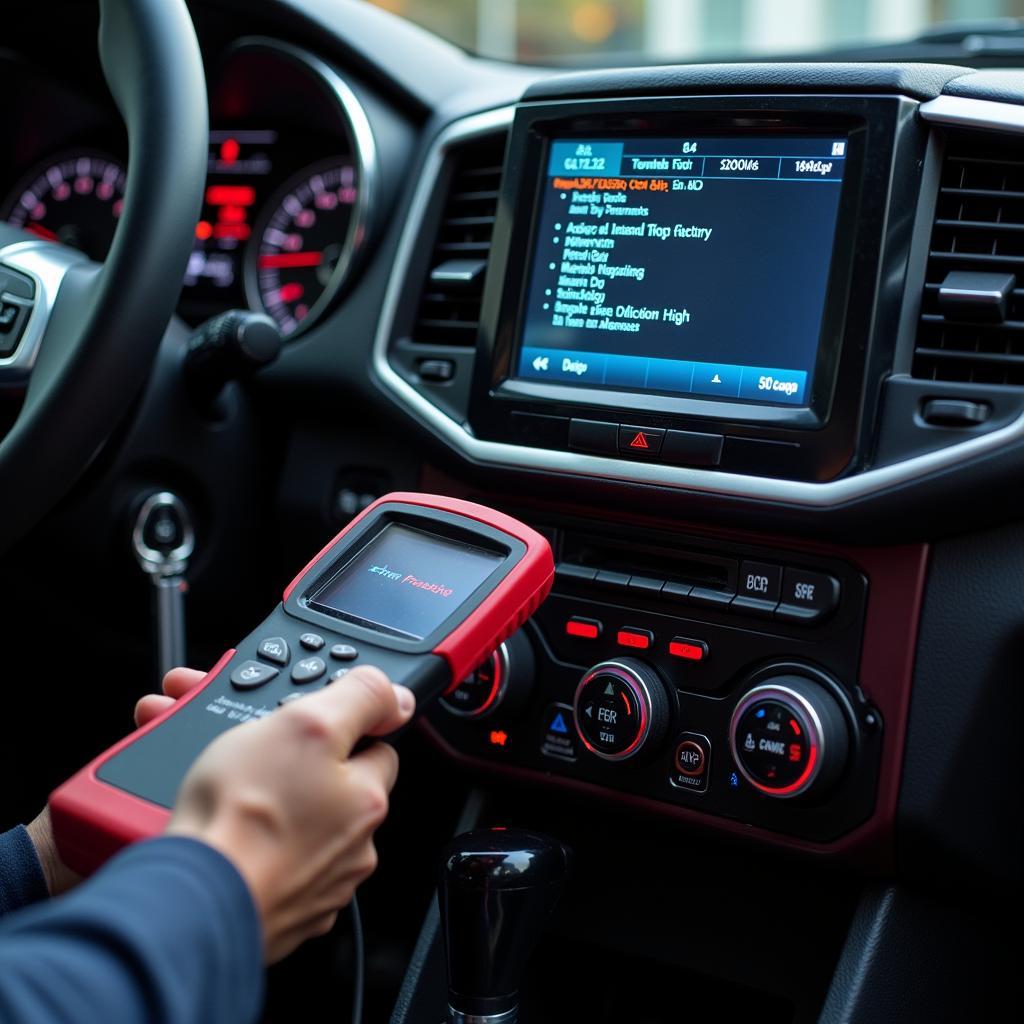Car Starting Problems Diagnosis can be a frustrating experience, leaving you stranded and unsure of the next steps. This guide provides a comprehensive approach to identifying and troubleshooting the most common causes of car starting issues, empowering you with the knowledge to get back on the road quickly.
Having trouble starting your car can be a major inconvenience, especially if you’re in a hurry or far from home. This detailed guide will help you understand the intricacies of car starting problems diagnosis. You’ll learn about the most common culprits, how to diagnose them, and even some preventive measures. For intermittent starting problems, check out our dedicated guide.
Understanding the Basics of Car Starting
Before diving into diagnostics, it’s helpful to understand the basic components involved in starting a car. This includes the battery, starter motor, ignition system, and fuel system. Each plays a crucial role, and a problem with any one of them can prevent your car from starting. These components work in harmony to bring your engine to life, and understanding their functions is crucial for effective car starting problems diagnosis.
The Battery’s Role in Starting
The battery provides the initial electrical power to crank the engine. A weak or dead battery is a very common cause of starting problems. You can test the battery’s voltage using a multimeter. A reading below 12.4 volts usually indicates a problem. Sometimes, a simple jump start might get you going, but it’s important to address the underlying issue to prevent recurring starting problems.
The Starter Motor: Turning Over the Engine
The starter motor uses the battery’s power to turn the engine over and initiate the combustion process. A faulty starter motor can produce a clicking sound when you turn the key, or you might hear a grinding noise. Testing the starter can sometimes require specialized tools, so you may need to consult a mechanic. For a list of the most common car problems, check our resource page.
The Ignition System: Providing the Spark
The ignition system provides the spark that ignites the air-fuel mixture in the engine cylinders. Problems with the ignition system, such as faulty spark plugs or a malfunctioning ignition coil, can prevent the engine from starting. These issues often require specific diagnostic tools and expertise to pinpoint the problem accurately.
 Inspecting a car’s spark plugs for wear and tear
Inspecting a car’s spark plugs for wear and tear
The Fuel System: Delivering the Fuel
The fuel system delivers the fuel necessary for combustion. A clogged fuel filter, a malfunctioning fuel pump, or a faulty fuel injector can disrupt the fuel supply, leading to starting problems. Checking fuel pressure can help diagnose fuel system issues. If your car is a diesel, we have a specific guide on diesel engine starting problems.
Diagnosing Car Starting Problems: A Step-by-Step Approach
Here’s a structured approach for diagnosing car starting problems:
- Check the Battery: As mentioned earlier, a weak battery is a common culprit. Try jump-starting the car. If it starts, the battery is likely the issue.
- Listen for Sounds: Pay attention to any unusual sounds when you turn the key. Clicking sounds often indicate a starter motor problem, while a grinding noise could point to a more serious issue.
- Inspect the Ignition System: Check the spark plugs for wear and tear. You may need a spark plug tester to verify they’re functioning correctly.
- Examine the Fuel System: Ensure the fuel pump is working and the fuel filter is not clogged. You may need a pressure gauge to test the fuel pressure.
- Seek Professional Help: If you’ve tried the basic steps and are still unable to diagnose the problem, it’s best to consult a qualified mechanic. For information on a persistent car issue, see our article on carryon car problems.
Common Car Starting Problem Scenarios and Solutions
-
Scenario: The engine cranks but doesn’t start.
-
Possible Causes: Faulty spark plugs, ignition coil problems, fuel system issues.
-
Solution: Check the spark plugs, ignition coil, and fuel system components.
-
Scenario: The engine doesn’t crank at all.
-
Possible Causes: Dead battery, faulty starter motor, or a problem with the ignition switch.
-
Solution: Test the battery and starter motor. If those are okay, check the ignition switch.
“A thorough diagnostic process is key to quickly resolving car starting issues,” says John Smith, a certified automotive technician with over 20 years of experience. “Don’t just throw parts at the problem. Systematic troubleshooting will save you time and money.”
 Using a diagnostic tool to troubleshoot car starting problems
Using a diagnostic tool to troubleshoot car starting problems
Preventing Car Starting Problems
Regular maintenance is crucial for preventing car starting problems. This includes:
- Regular Battery Checks: Test your battery voltage periodically and replace it when necessary.
- Starter Motor Maintenance: Ensure the starter motor connections are clean and tight.
- Ignition System Tune-Ups: Replace spark plugs and other ignition components as recommended by the manufacturer.
- Fuel System Cleaning: Clean the fuel injectors and replace the fuel filter regularly.
“Preventive maintenance is the best way to avoid car starting problems,” advises Jane Doe, lead mechanic at a reputable auto repair shop. “Regular checks and timely replacements can save you from unexpected breakdowns and costly repairs.” For more common car problems, see our helpful list.
Conclusion
Car starting problems diagnosis doesn’t have to be a daunting task. By understanding the basics, following a systematic approach, and performing regular maintenance, you can keep your car starting reliably. Remember, if you’re unsure about any step, it’s always best to consult a qualified mechanic. For more information about intermittent starting problems, consult our guide.
Contact AutoTipPro at +1 (641) 206-8880 or visit our office at 500 N St Mary’s St, San Antonio, TX 78205, United States for any assistance.





Leave a Reply